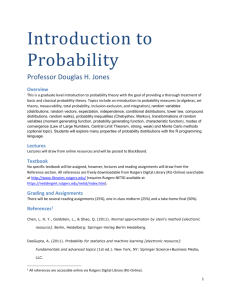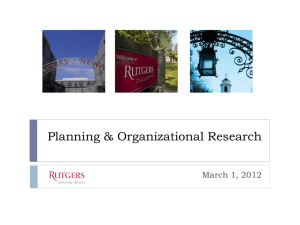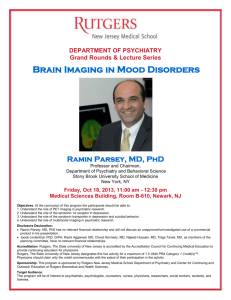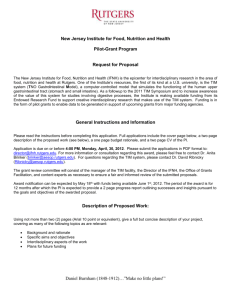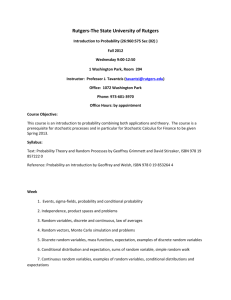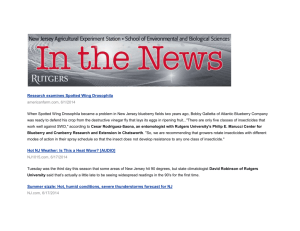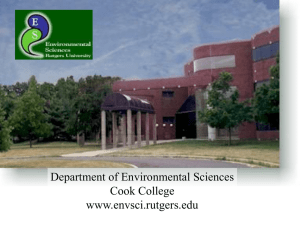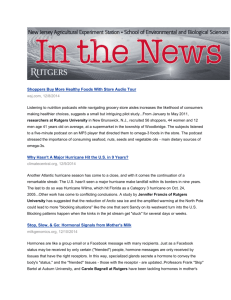Worldwide Surge in `Great` Earthquakes Seen in Past 10 Years
advertisement
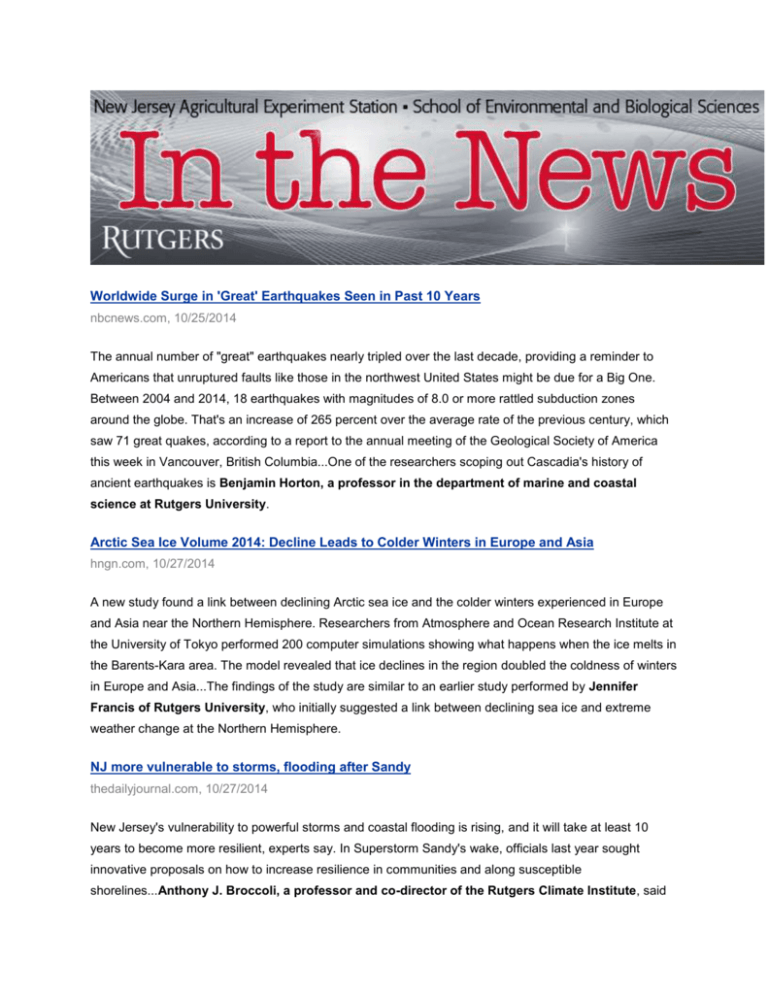
Worldwide Surge in 'Great' Earthquakes Seen in Past 10 Years nbcnews.com, 10/25/2014 The annual number of "great" earthquakes nearly tripled over the last decade, providing a reminder to Americans that unruptured faults like those in the northwest United States might be due for a Big One. Between 2004 and 2014, 18 earthquakes with magnitudes of 8.0 or more rattled subduction zones around the globe. That's an increase of 265 percent over the average rate of the previous century, which saw 71 great quakes, according to a report to the annual meeting of the Geological Society of America this week in Vancouver, British Columbia...One of the researchers scoping out Cascadia's history of ancient earthquakes is Benjamin Horton, a professor in the department of marine and coastal science at Rutgers University. Arctic Sea Ice Volume 2014: Decline Leads to Colder Winters in Europe and Asia hngn.com, 10/27/2014 A new study found a link between declining Arctic sea ice and the colder winters experienced in Europe and Asia near the Northern Hemisphere. Researchers from Atmosphere and Ocean Research Institute at the University of Tokyo performed 200 computer simulations showing what happens when the ice melts in the Barents-Kara area. The model revealed that ice declines in the region doubled the coldness of winters in Europe and Asia...The findings of the study are similar to an earlier study performed by Jennifer Francis of Rutgers University, who initially suggested a link between declining sea ice and extreme weather change at the Northern Hemisphere. NJ more vulnerable to storms, flooding after Sandy thedailyjournal.com, 10/27/2014 New Jersey's vulnerability to powerful storms and coastal flooding is rising, and it will take at least 10 years to become more resilient, experts say. In Superstorm Sandy's wake, officials last year sought innovative proposals on how to increase resilience in communities and along susceptible shorelines...Anthony J. Broccoli, a professor and co-director of the Rutgers Climate Institute, said "the risk of flooding from coastal storms is going to be changing dramatically over the course of the rest of this century and the risks will be increasing. That's not because the storms (have) changed. It's because the sea level is rising." Our climate change is related to deep ocean currents and glaciations earthtimes.org, 10/27/2014 The mapping of currents deep in the oceans has been a protracted study. A combination of deep ocean sediment core samples and NASA imaging now reveal that climate change is affected at least as much by the sea as by the air temperature. Rutgers University academics Stella Woodard, Yair Rosenthal, Kenneth Miller, James Wright, with Kira Lawrence (Lafayette College) and Beverly Chiu, all contributed to the paper in the journal Science that puts a new perspective on climate change. Past Climate Change Was Caused by the Ocean, Not Just the Atmosphere spacedaily.com, 10/28/2014 Most of the concerns about climate change have focused on the amount of greenhouse gases that have been released into the atmosphere. But in a new study published in Science, a group of Rutgers researchers have found that circulation of the ocean plays an equally important role in regulating the earth's climate..."We argue that it was the establishment of the modern deep ocean circulation - the ocean conveyor - about 2.7 million years ago, and not a major change in carbon dioxide concentration in the atmosphere that triggered an expansion of the ice sheets in the northern hemisphere," says Stella Woodard, lead author and a post-doctoral researcher in the Department of Marine and Coastal Sciences. Jersey's trees still vulnerable two years after Hurricane Sandy MyCentralJersey.com, 10/28/2014 Two years ago this week, Hurricane Sandy ravaged New Jersey with a force not experienced here in a century, and the devastation it caused to coastal areas was the subject of local and national news for weeks and months after. "It was some of the worst storm surge flooding we've ever seen," confirmed arborist Chris Padot, owner of Bridgewater-based Green Tree Surgeons. "But while coastal towns received much of the media attention,the extremely high wind gusts experienced in interior sections of the state wreaked incredible havoc on our area's trees and created what seemed like a third world country here for a few weeks..." "Our trees have been taking a pounding for the past three years and there's probably years' worth of tree work still out there," said Nicholas Polanin, agriculture and resource management agent with Rutgers Cooperative Extension in Bridgewater. Rutgers community provides targeted Ebola aid for Liberia dailytargum.com, 10/28/2014 Imagine walking into a Rutgers health care center with a high fever and finding the place nearly deserted. Most of the nurses and doctors are sick, dead or too afraid to show up. For the remaining few, there are no gloves, soap or disinfectant. Jim Simon described this scenario to illustrate the urgent need for medical supplies in Liberia in the wake of the Ebola outbreak. Simon, a distinguished professor in the Department of Plant Biology and Pathology at Rutgers, helped start Operation: Targeted Support, a volunteer initiative at Rutgers focused on shipping medical supplies overseas. Celebrating excellence in volunteering as a Rutgers Master Gardener MyCentralJersey.com, 10/29/2014 Earlier this month hundreds of Rutgers Master Gardeners gathered at the Cook Campus Center of Rutgers University in New Brunswick to conduct Annual Fall Conference. As part of the continuing celebration of Cooperative Extension’s Centennial Anniversary, the conference's theme was "100 Years and Still Growing." This was a very appropriate theme for this group considering the thousands of hours these volunteers offer throughout the state to greatly expand the education mission of Rutgers Cooperative Extension through their county-based offices and programs. Study Suggests Harsh Winters Connected With Sea Ice Decline dumb-out.net, 10/29/2014 A team of scientists have recently published a paper which discusses the link between extreme weather and the decline of Arctic Ice. In light of the human emissions-slash-global warming discussion, this study is very important. It has confirmed that cold winters throughout Europe and Asia are twice as common these days because of a decline in sea ice in a specific region of the Atlantic Ocean..."This is a very solid paper that supports the mechanism identified in other recent papers linking sea-ice loss in the area of the Arctic Ocean north of Scandinavia to persistently cold winter conditions in central Asia," stated Jennifer Francis, researcher at Rutgers University. Here's why GMO labeling initiatives might fail - again washingtonpost.com, 10/29/2014 Yesterday, the Oregonian released a new poll it had commissioned showing that Measure 92, a ballot initiative to require the labeling of foods containing genetically modified ingredients in the state, was trailing 48 to 42 percent among likely voters. Yet back in July, another poll conducted for Earthfix of Oregon, an environmentally focused branch of Oregon Public Broadcasting, put support for the initiative at a very impressive 77 percent...One 2013 survey conducted by researchers at Rutgers University found that 54 percent of Americans say they know "very little or nothing at all" about genetically modified foods, and 25 percent have never even heard of them. .."It's really clear that people don't know very much about the subject," says Rutgers' William Hallman, lead researcher on the poll. "And when people don't know much abut a subject, how you ask them a question about it largely determines the answer you get back." Climate Change Caused by Ocean Currents, New Research Shows inhabitat.com, 10/29/2014 Greenhouse gasses may not be the sole culprit behind climate change. According to a new study, ocean currents also play a huge part in regulating our climate. Phys.org reports that Rutgers University research shows major cooling of the Earth and ice buildup that happened 2.7 million years ago took place alongside a shift in the circulation of ocean currents, which pull in heat and CO2 from the Atlantic and move them through the deep ocean in a north to south direction before releasing the water into the Pacific..."We argue that it was the establishment of modern deep ocean circulation - the ocean conveyor about 2.7 million years ago, and not a major change in carbon dioxide concentration in the atmosphere that triggered an expansion of the ice sheets in the northern hemisphere," says Stella Woodard, lead author of the study and post-doctoral researcher at Rutgers Department of Marine and Coastal Sciences. Frogs' chorus leads to discovery of new species in US bbc.com, 10/29/2014 Scientists have confirmed that a frog found living in New York City wetlands is a new species. Jeremy Feinberg, of Rutgers University in New Jersey, who led the study, first reported the discovery when he heard their "very odd" chorusing call. Teaming up with genetics experts to confirm the finding, Mr Feinberg has now published the discovery in the journal Plos One. It is the first new frog species found in the region for nearly 30 years. Mr Feinberg told BBC News he knew he might be on to something when he heard a group of them calling in chorus at a wetland study site on Staten Island. New frog species discovered in New Jersey, New York NJ.com, 10/29/2014 As biologists explore ever further into the outer reaches of the planet, sometimes the next new species is on Staten Island. A Rutgers researcher and a team of coauthors have discovered a new species of frog that had been hiding in plain sight along the east coast, according to a new paper published Wednesday in the journal PLOS ONE..."The discovery of a new frog species from the urban Northeast is truly remarkable," said Jeremy Feinberg, a doctoral candidate in Rutgers' School of Environmental and Biological Sciences, who said the discovery "was really an accident." Big City, Big Surprise: New York City's Newest Species Is a Frog news.nationalgeographic.com, 10/29/2014 Even in one of the most densely populated places on Earth, nature is still capable of some big surprises. Biologists have described a new species of leopard frog discovered in New York City. Only the second new frog species found in the continental United States in the past 30 years, it remained hidden in plain sight in a city of 8.4 million people. "It's a pretty unique event," said Rutgers University ecologist Jeremy Feinberg, part of a group of researchers who made the discovery. New Leopard Frog Found in New York City smithsonianmag.com, 10/29/2014 There's a newly discovered vocalist in the Big Apple with a sound unlike any other in the city. In 2008, Jeremy Feinberg, a graduate student at Rutgers University, was wading around in a wetland on Staten Island when he heard something strange. In a swampy patch less than 10 miles from the Statue of Liberty, he picked up on a peculiar chirp-chirp call that was distinct from the croaks of the known leopard frogs on the island. Investigating that song ultimately led Feinberg and his colleagues to a new species of leopard frog - the first amphibian discovered in New York since 1854, and the first found in the U.S. in three decades. We invite you to send an email to InTheNews@aesop.rutgers.edu alerting us when you are quoted in a story or if your program is mentioned in the news. Please send links of news, as it happens, as some media outlets do not retain online links beyond a week. Visit the SEBS and NJAES Newsroom at sebsnjaesnews.rutgers.edu.
